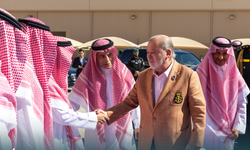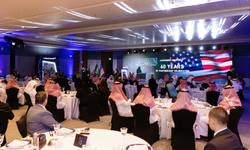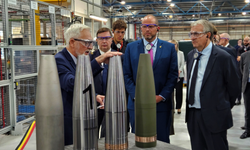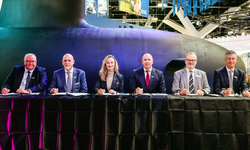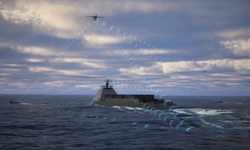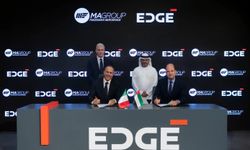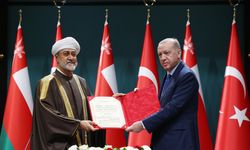The Industrial Plan outlines ambitious financial projections by 2029, including:
Orders reaching €26.2 billion (compared to €20.9 billion in 2024)
Revenues increasing to €24 billion (compared to €17.8 billion in 2024)
EBITA growing to €2.8 billion (compared to €1.5 billion in 2024)
Free Operating Cash Flow (FOCF) reaching €1.53 billion (compared to €0.83 billion in 2024)
For the 2025-2029 period, cumulative orders are expected to total €118 billion, with revenues reaching €106 billion. EBITA is projected to grow at a compound annual growth rate (CAGR) of 13.1%, and FOCF at 15.2%.
CEO and General Manager Roberto Cingolani emphasized that the plan’s efficiency initiatives have already yielded significant results. Cost-saving measures have resulted in gross savings of €1.8 billion, with €191 million realized in 2024 alone.
Digital Transformation and Technological Advancements Leonardo is driving a large-scale digital transformation across its operations, focusing on enhancing efficiency, production optimization, and lifecycle management. Key initiatives include:The development of a Digital Twin to optimize the product lifecycle through AI and simulation technologies.
Strengthening multidomain interoperability within the Global Combat Air Programme (GCAP), including ISANKE (Integrated Sensing and Non-Kinetic Effects) and ICS (Integrated Communication System).
Advancing AI-powered command and control systems for full multidomain operations.
Expanding post-sales digital services to enhance long-term customer support.
Strategic Partnerships and New VenturesTo accelerate global competitiveness, Leonardo is strengthening its partnerships and establishing new joint ventures, including:
Leonardo Rheinmetall Military Vehicles (LRMV): A joint venture focused on next-generation armored vehicle development, including 1,050 AICS units and 272 MBT units for the Italian Army by 2040, with an expected upside of €1 billion.
Leonardo-Baykar JV: A collaboration to enhance unmanned aerial vehicle (UAV) capabilities by integrating Baykar’s UAV platforms with Leonardo’s mission systems and European certification expertise. This initiative is expected to generate €600 million in revenue.
GCAP Fighter Jet Program: In partnership with Mitsubishi and BAE Systems, Leonardo is contributing expertise in combat electronics and digitalization. The program is backed by €40 billion in investments, with 350 fighter jet orders projected by 2035.
Leonardo Hypercomputing Continuum (LHyC): A new business unit leveraging AI, high-performance computing (HPC), and digital technologies across various industries, expected to generate €230 million in cumulative orders.
Space Division Expansion: Leonardo is consolidating its space initiatives to offer end-to-end solutions in the growing space market, estimated to generate €1.3 billion over the plan period.
Future Outlook and Workforce DevelopmentLeonardo plans to support its growth with a large-scale STEM recruitment initiative to attract talent for future technological developments. Additionally, a disciplined capital allocation strategy will ensure sustainable shareholder returns, with a proposed dividend increase to €0.52 per share in 2025 (up from €0.28 in 2024).
By reinforcing its core business, expanding digital capabilities, and fostering international alliances, Leonardo is positioning itself as a leader in global security and defense technology. The company’s strategic direction reflects the evolving defense landscape, emphasizing the transition from traditional defense to comprehensive global security solutions.

